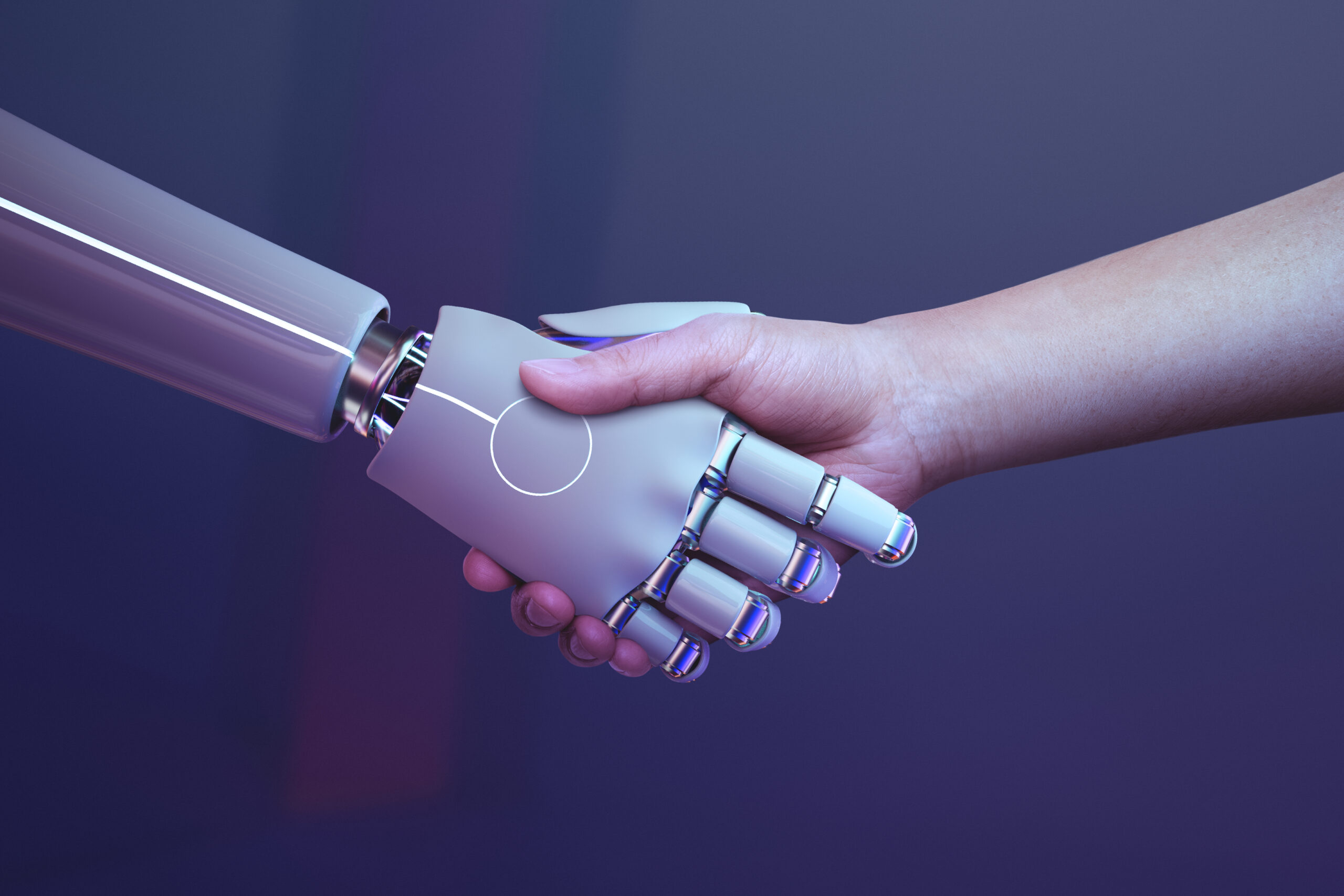Most jobs will look different in the future due to automation. As robotics innovation, machine learning, and artificial intelligence (AI) advance, some jobs will disappear, and at the same time, new careers will be created. Today, there are around 120 robots per 10,000 manufacturing employees. This ratio has doubled in the past five years with strong growth in the demand for collaborative robots or cobots, which work alongside people on the factory floor or in the lab - almost like an assistant. Automation brings precision, speed, control, and safety. However, research shows that automation will not only have an impact on manual or low-skilled workers. While industrial robots are (partly) taking over manual labor, AI is perfecting and automating data-based decision-making.
Artificial versus human intelligence
Artificial intelligence is designed to process large data volumes to simulate human intelligence in order to perform tasks like speech recognition, translations, visual perception, and decision-making. In the healthcare sector doctors have already embraced machine-learning algorithms to inform medical decisions. Together artificial intelligence and machine learning collect and analyze research, use pattern recognition across patient populations, and suggest treatment options based on the aggregated success rate. Combined with the doctor’s training, expertise, and experience, artificial intelligence thus boosts the quality of care and treatment success. According to a 2016 study, physicians who used AI to inform their diagnoses of metastatic breast cancer decreased error rates by 85%.
With algorithms already transforming decision-making in the healthcare industry, the question is what opportunities there are for AI in corporate governance. In the medical sector, the cost of a bad decision can be undeniably high; this holds true for the business world. Accenture predicts that, by 2035, AI can potentially increase profitability rates by up to 38% and boost the economy by 14 trillion USD. Data research consulting group, Forrester, calculated that a 10% rise in data access could increase the net income of the average Fortune 1000 company by 65 million USD.
Two sides of the same coin
For day-to-day business processes, companies and boards have been open-minded toward AI applications. The technology can be used to anticipate customer needs, improve the customer experience, and automate and augment administrative and operational activities like screening resumés of job candidates. When a company decides to implement AI and/or machine learning in its business practices, at the very least, the board needs to ensure proper AI governance. The quality of the data fed to AI tools is critical. Many artificial intelligence applications operate like a ‘black box’. Incorrect or biased input data can yield unreliable results and even have harmful repercussions. On top of that, as a digital technology, AI poses a significant cybersecurity risk. The recently passed Algorithmic Accountability Act is the next step in safeguarding the potentially harmful consequences of artificial intelligence in the business environment.
Robots in the boardroom
The board requires shrewdness, good judgment, and business acumen obtained over decades of experience to be able to tackle important, nuanced, and complicated decision processes. Does AI have a place in board decision-making itself? Are robots taking over the boardroom? There have been two cases of companies appointing an AI platform to a leadership position. In 2014, a venture capital firm in Hong Kong added the algorithm named Vital to its corporate board. Europe-based Tieto Corporations (now Tietoevry) made an AI platform named Alicia T a member of its executive team in 2016. Even in these rare instances, the AI leaders only get a vote in very specific circumstances but are mostly used to only assist in the board’s decision-making scenarios.
The boardroom of the future
With AI already deployed as a decision-making tool in healthcare and investment banking – two inherently complex sectors – the possibility of AI in the boardroom is no longer science fiction. While the replacement of directors by AI platforms is not in the cards, artificial intelligence will inevitably enter the boardroom directly or indirectly through the application of AI and machine learning elsewhere in the organization. Provided access to large amounts of data, AI can help boards make fact-based and unbiased decisions quicker and shed light on the trajectory of the industry and market, as long as it is used as a tool combined with the expertise and experience of the directors themselves. In this technological era, board directors need to be prepared for scenarios in which AI affects and potentially even disrupts their decision-making, strategy, and deliberations.
At Corporate Boards USA, our mission is to prepare executives to be highly qualified board candidates. We offer our members educational courses and events, networking opportunities, boardroom news, workshops, and mentorship programs. If you’re serious about getting on the path to the boardroom, apply for membership. We Make You Board Ready.
